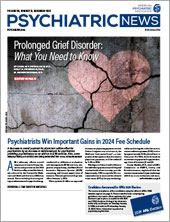In the blink of an eye, the holiday season is now upon us. The approach of the holidays carries different meanings and different concerns for our patients. For some, there is longing for friends and family whom they will not be able to see, and for others it is the obligatory visit with a dysfunctional family that may trigger traumatic memories. For others, the holidays represent the potential for relapse or risky substance use. While arrests for driving under the influence peak in the summer, they peak again in November and December. The holiday with the most fatalities due to drunk driving is New Year’s. Because of this, I am mindful of addressing substance use with patients.
I am also mindful of something else—the effects of discrimination on patients when it comes to being assessed for substance use and accessing treatment for substance use. There are two main factors that give rise to stigma: cause and controllability. When these factors are misunderstood, or when beliefs about cause and controllability persist despite medical science, discrimination persists. Discrimination is the behavior that results from negative stereotypes (stigma).
Patients can experience internalized stigma. Health care practitioners can demonstrate discriminating behaviors by eschewing even basic screening and brief interventions or by discouraging change based on their perspective that treatments are ineffective. Even within the recovery community, there can be discrimination. For example, individuals taking a medication to support their abstinence and recovery may be told that they are not abstinent or individuals using illicit drugs may be told that they are not welcome in an Alcoholics Anonymous meeting.
There are ways for psychiatry to reduce the discrimination against people with substance use disorders. All patients with a substance use disorder should have access to treatment that aligns with best practices. For example, it is ludicrous that third-party payers continue to require prior authorization for medications for opioid use disorder and for some pharmacies to not even carry these medications. All physicians should have at least the appropriate skill set to identify risky substance use and apply Screening, Brief Intervention, and Referral to Treatment (SBIRT). All physicians should be knowledgeable about and appreciate the effectiveness of current interventions and treatments.
There seems to be a greater interest now on the part of legislators and policymakers to step up and fund research on the prevention and treatment of substance use disorders. Continued state and federal advocacy is needed, but the health care community itself needs to further address discrimination in the area of substance use disorders and advance the ability of practitioners to assess, support, and assist patients with substance use disorders. ■
Resources
APA urges you to become involved with advocacy, and staff in APA’s Division of Government Relations will work with you and provide you with helpful tools.


